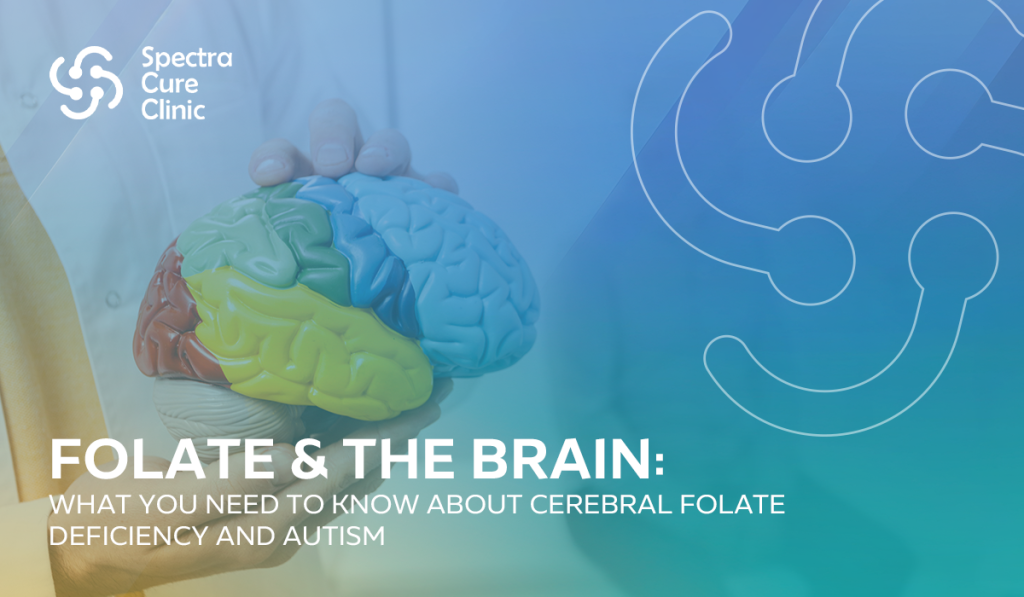
A mother noticed her child with autism was becoming more irritable, having trouble
sleeping, and regressing in speech. Lab tests showed normal folate in the blood, but the
real issue was deeper: Cerebral Folate Deficiency (CFD).
What is Cerebral Folate Deficiency?
CFD is a condition where folate levels in the cerebrospinal fluid (CSF) are low, even
when blood folate appears normal. This disrupts the brain’s ability to function, affecting
development, behavior, cognition, and mood.
The Link Between CFD and Autism:
- Up to 71% of children with autism have folate receptor autoantibodies (FRAAs) that block folate from entering the brain.
- Children with autism are 19 times more likely to have these autoantibodies than neurotypical children.
- Low folate in the brain may lead to seizures, developmental delays, and even aggressive behavior, especially during puberty.
Treatment Options:
- The most effective and well-researched treatment is Leucovorin (prescription folinic acid), given in high doses.
- Some doctors also prescribe Deplin (L-methylfolate), but it contains additives like dairy and is dosed differently.
- Important: Avoid synthetic folic acid, which may worsen the condition by blocking folate receptors.
Role of Diet:
A dairy-free diet is recommended, as cow’s milk can interfere with folate absorption in
the brain.
Does Folate Decrease With Age?
Yes. A 2016 study showed that 5MTHF levels drop as autistic children age, meaning
older kids may need more folate support, not less, especially during periods of rapid
growth.
Key Takeaways:
- Blood folate levels can be misleading—CFD requires evaluating brain folate.
- Treatment may take months or even years to show full results, but slow, steady improvement is possible.
- Testing for FRAAs can provide helpful clues, though a spinal tap is the only definitive diagnosis.
- CFD is treatable, and early intervention can dramatically improve a child’s quality of life.
Post Views: 28

